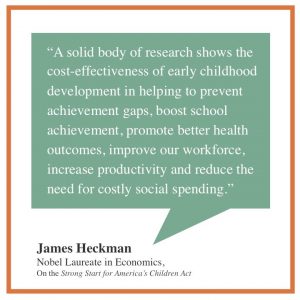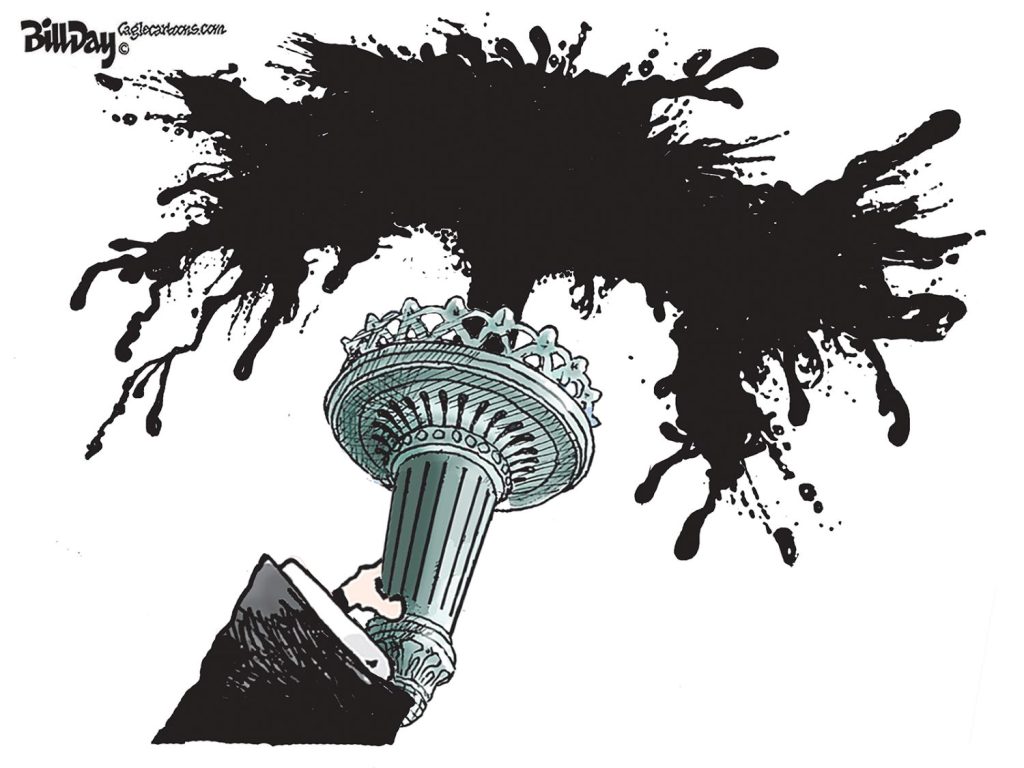There is no phrase better known in the contemporary history of Memphis politics than Memphis Mayor Jim Strickland’s “brilliant at the basics.”
The four words have been extolled by his supporters as capturing the mood of the public in the 2015 mayoral election and by his detractors as evidence of a lack of vision.
And yet, one thing is clear: the phrase connected with a sizable segment of city voters concerned that if city government could not get the basics right, how could it really handle the big things, and if it was unable to pave streets and fill potholes, could it actually execute the dozens of plans lining shelves in City Hall?
The weekly updates emailed by Mayor Strickland report often on the number of potholes being filled, the streets paved, the police officers hired, animal save rates, longer library hours, and better response times for 9-1-1 calls. All are trending in the right direction.
After about a year and a half of proving that the basics do matter and that they can be improved, Mr. Strickland has now demonstrated that basics are about more than the nuts and bolts of government. They also include youth jobs and programs, minority and women-owned businesses, a more vibrant riverfront, a plan for a high-performing youth sports complex at the Fairgrounds, and a downtown concept that includes a reinvented Memphis Brooks Museum of Art and a possible Mud Island aquarium.
But the broadened definition of “brilliant at the basics” as shown by these important initiatives pales in importance to Mayor Strickland’s Saturday announcement that city government will invest $6 million a year into pre-kindergarten.
It’s Our Talent Strategy
Since beginning this blog 13 years ago, we have written several dozen times about the value of pre-K, including the following in 2013:
“When we look to cities that are moving in the right direction these days, it’s almost inevitable that there was a point in time when a strategic decision or investment was made that changed their trajectories for the better. The best investments – the ones that have the traction to change things – are rooted in what’s distinctive about the specific city itself. This is something that the private sector has known for some time: competitive advantage is found in differentiation.
“It’s that differentiation that tells us why Pre-K means so much to Memphis and its future. Here’s why it matters: When compared to the other 51 largest MSAs, Memphis is in the top of the rankings for the percentage of the population under 18 years old. There are many research-backed reasons to support Pre-K, but the one that gets our attention is that students who have participated in Pre-K are more likely to graduate from high school (and hopefully, are poised to attend college).
“In that way, for us, Pre-K is much more than an educational strategy. Rather, it is Memphis’ talent strategy.”
Since merging with the PeopleFirst Partnership, Seeding Success has made impressive inroads with officials outside of the education system, and one of its presentations to the Memphis City Council especially resonated. Council members Kemp Conrad and Patrice Robinson were instrumental in moving Pre-K to the front burner of city priorities and although the Council’s resolution supporting Pre-K funding was nonbinding, it contributed to the momentum needed to develop the full funding – $16 million – needed for universal Pre-K.
Other Policy Benefits
The Strickland plan for the city’s $6 million infusion into Pre-K comes from two sources: one is the dedication of one penny of the city’s tax rate, which equates to $1.2 million a year, and the rest will come from the new City of Memphis taxes that result when PILOTs expire, producing the rest of the money by 2022.
In a November 8, 2017, blog post, we recommended a different way for the PILOTs to serve as a source of funding for Pre-K, and while Mayor Strickland took a different approach, it can contribute to smarter public policy about tax freezes. We proposed reducing the maximum PILOT amount for city tax freezes to about 65-70% and capturing the difference in the benefits for Pre-K.
That said, we see positive policy implications from Mayor Strickland’s approach.
First, it puts more pressure on the agencies granting tax freezes to minimize the length of the PILOTs because every year granted is a year in which Pre-K funding is deprived.
Second, it puts additional pressure on EDGE to resist applications for the so-called retention PILOTs that have been used to exempt some massive corporations from ever paying their fair share of property taxes. Maybe now, EDGE’s retention PILOTs, which are its least defensible incentives and do not now calculate a company’s cost of moving in its calculations, will be required to factor in the lost funding for Pre-K that results from a new tax freeze.
Stepping Up With Full Funding
Hopefully, Shelby County Government will step forward to participate in a plan to provide substantial funding for Pre-K. After all, PILOTs today waive $10 million in county taxes that would otherwise go to schools, and it is county government, rather than city government, that is legally responsible for educational funding.
Today, Shelby County Government contributes $3 million to pre-K, and $8 million comes from federal sources that expire next year. As a result, the ultimate question is not to solve the funding gap for 1,000 students, but to consider how to prepare for the potential of the 2019 loss of $8 million in federal funding. The City of Memphis funding pledge goes a long way in doing that.
When it comes to Pre-K, it seems to be one of those times when research and common sense converge. After all, many of us can afford to pay for our children or grandchildren to enroll in quality pre-K, and we do it because we have seen the improvements that come from this early introduction to language, thinking, self-control, and pride in achievement.
Fewer than half of the 242,000 children in Shelby County are economically secure, where the odds of climbing the income ladder are stacked against them. In this way, Pre-K is an early effort to level the playing field and give children often treated as liabilities the opportunities to become talented assets for our community as it works to compete for jobs in the knowledge economy.
It is hard to think of anything that pays more dividends to our economy than high-skill workforce, but we are now ranked toward the bottom of the 51 largest regions in the percentage of college-educated 25-34 year-olds (and the percentage of college-educated workers accounts for 60% of a city’s economic success). To improve those percentages, there’s no better time than to start at the beginning and set in motion a different future for our youngest children.
Like all public policy issues, ultimately, our task as voters is to assess all the research and determine what the consensus is. For us, the body of research underscores its value and emphasizes its potential for Memphis, because of the hundreds of studies about Pre-K and early child development, it is the consensus opinion that Pre-K matters and prepares students for learning.
Every Child Deserves A Fair Start
Studies show that children who don’t attend Pre-K fail kindergarten and first grade two times more than children who did attend pre-K. In addition, children who attend pre-K have better behaviors that contribute to learning, and this behavior leads to better first grade attendance, which is a strong predictor of long-term achievement. In addition, teachers – the ultimate experts in our book – rate children who attended Pre-K as better prepared for school and learning.
And yet, the importance of Pre-K is about more than academics. That is of course important, but more to the point, it’s about school readiness, and school readiness is about language and literacy, thinking skills, self-control, and self-cEvonfidence. Children learn about language by listening to words, and Pre-K strengthens vocabulary and readiness to read. Pre-K encourages and leads children to think conceptually and connect concepts to form new ideas. Pre-K teaches children how to act in school, what good behavior is, and why it’s important to listen to teachers. Pre-K makes children self-confident and ready to learn as they enter school instead of seeing themselves as failures at the age of six by failing kindergarten or first grade.
A school system where children are five and six years old when they enter a classroom has squandered an important opportunity for optimal brain development. For too long, pre-K has been seen as a worthy thing to do but not as an absolute necessity. Today, we know better. Pre-K can transform children’s lives, resulting in everything from improved vocabulary to improved school attendance to higher graduation rates.
In truth, there is no greater responsibility that we have as a community than to give every child a fair start in life, regardless of where he lives or how much his family earns. That’s what pre-K is all about, because it produces the magic that occurs when we give children their best opportunities to prepare them for what lies ahead in their lives.
In the coming weeks, all of us have a chance to become advocates for funding pre-K. We talk often about Memphis needing a brand that speaks to who we are and what we value. As for us, it’s hard to think of a better brand than for Memphis to be known as a city that cares for its children.
**
Join us at the Smart City Memphis Facebook page for daily articles, reports, and commentaries relevant to Memphis.





While we all may have some disagreements, Memphis City and Shelby County government does pretty well with limited financial resources and Pre-K is a major step forward. At the same time, following the announcement, IMPLEMENTATION is key. There are quite a few announcements and even plans that seem for some reason to not get implemented around here. Implementing the funding formula will require that current PILOTS are not renewed. On the heels of the Electrolux expansion PILOT and City/County creation of EDGE, I can’t imagine that local legislative bodies thought that the IMPLEMENTATION of EDGE would result in a binge of Retention PILOTS while also now renewing some PILOTS. I need to go back and read the resolution but I find it a bit weird that funding legislative bodies in City Council and County Commission did not require an annually scheduled formal review of EDGE and like entities for that matter. Anyway, for what its worth, Memphis Corporate Community Leadership Measured (MCCLM) has a new MCCLM authored feature called “EDGE Retention/Expansion Profiles”. Check it out at http://mcclmeasured.net
JBK…you need to attend the EDGE Board meeting this Wednesday…you might find it informative / educational.
Well Researched, no doubt knowing who you are would add helpful context to our conversation. I have been to a bunch of EDGE meetings and I wonder if the Board Members understand what they are voting on in the form of ACTUAL tax revenue impact. Overall, I feel the function of EDGE of packaging local resources like the port, workforce and new job expansion incentives is needed and required in the competitive work of economic development. My challenge is with the excess embedded in well intended efforts in the form of incomplete accounting which provides a justification for abatements for retention and existing jobs PILOTS and the renewal of expired PILOTS.
Within the IMPLEMENTATION of the funding formula, has anyone considered that both renewing and offering new retention PILOTS would undermine the very tax base that is being projected to fund Pre-K ??